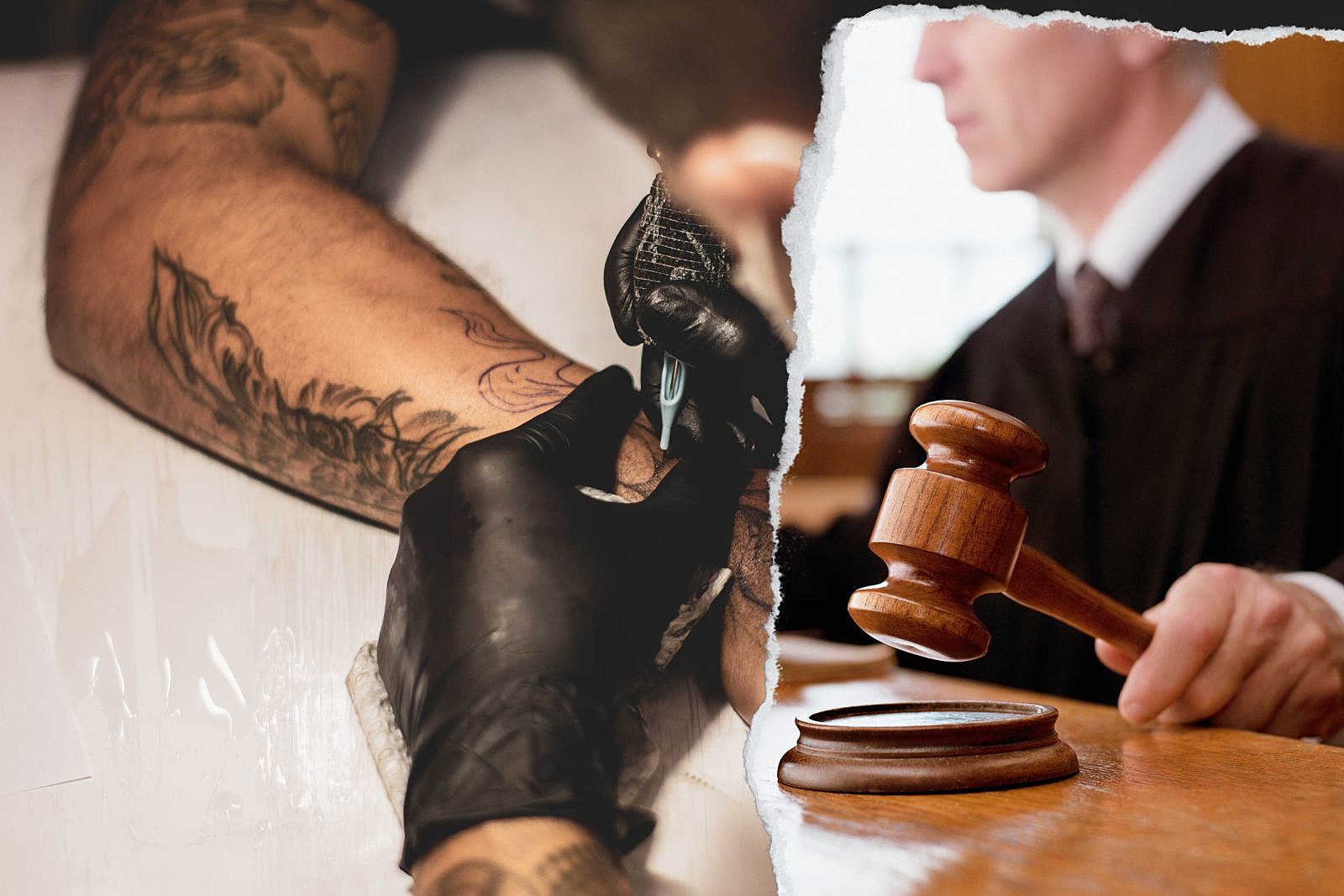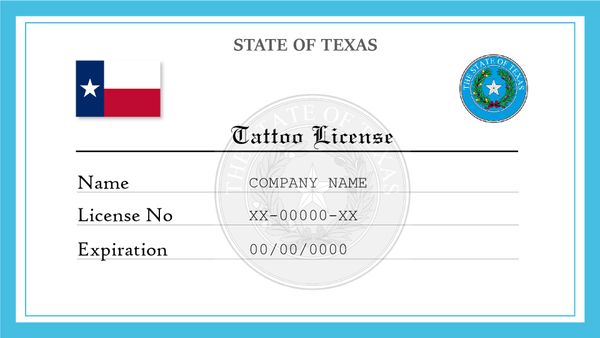Texas Tattoo Laws: Age Limits, Licensing, Health Standards, and Compliance Updates for 2025
Getting a tattoo in Texas isn’t just about picking the right design—it’s about understanding the laws that keep both artists and clients safe. Whether I’m thinking about my first tattoo or adding to my collection, I want to know what the state requires before I book an appointment.
Texas has clear rules for tattoo shops and artists, covering everything from age limits to health standards. Knowing these laws helps me make informed choices and ensures my experience is both safe and legal. If I’m curious about what it takes to get inked in the Lone Star State, it’s smart to start by learning the basics of Texas tattoo laws.
Overview of Texas Tattoo Laws

Overview-of-Texas-tattoo-Laws
Texas tattoo laws regulate age requirements, studio licensing, health guidelines, and procedures for legal compliance. The Texas Department of State Health Services (DSHS) enforces these rules for both tattoo artists and studios.
Age Restrictions:
Texas laws ban tattooing anyone under 18, except for specific medical or cosmetic procedures performed with parental consent as defined in Texas Health and Safety Code §146.012. For example, minors with parental presence and documentation may receive tattoos to cover up certain existing tattoos, not for general designs.
Studio Licensing:
Tattoo shops in Texas must hold a valid DSHS license displayed in a visible spot within the premises. A shop without a current license risks fines or closure. Inspections occur regularly and after complaints to ensure compliance with sanitation and operation standards.
Health and Safety Standards:
Texas law mandates strict hygiene for tattoo procedures. Artists must use single-use needles, wear gloves, and properly sterilize all equipment. Studios must maintain clean, organized environments following state-approved protocols to minimize infection or disease risks.
Artist Registration:
Artists need to register with DSHS and uphold continuing education on sanitation and safety practices. Violations lead to penalties, suspension, or revocation of practice rights.
Texas Tattoo Laws: Key Requirements Table
| Area | Regulation | DSHS Citation |
|---|---|---|
| Minimum Age | 18, with narrow exceptions | §146.012, Health & Safety |
| Studio Licensing | License required | §146.003, Health & Safety |
| Equipment Sterilization | Single-use needles, autoclave sterilizers | State Health Code |
| Parental Consent | Required for minors (specified situations) | §146.012, Health & Safety |
| Inspection Frequency | Regular and complaint-based | DSHS Policy |
| Artist Registration | Mandatory; education on hygiene | DSHS Rules |
I link each law back to DSHS as the authoritative source monitoring real-time compliance statewide. Any updates or enforcement actions originate from this authority, making studio and artist awareness vital for ongoing lawful operation.
Age Restrictions and Consent Requirements
Texas tattoo laws strictly control age access and consent. I’ll break down how the state applies these regulations to tattoo shops and minor clients.
Minimum Age for Getting a Tattoo
Texas prohibits tattooing anyone under 18 years old. No tattoo studio or artist licensed by the Texas Department of State Health Services (DSHS) can knowingly tattoo a minor unless a rare exemption applies.
Age Enforcement Table
| Requirement | Detail | Source |
|---|---|---|
| Minimum Age | 18 years | Texas Health & Safety Code §146.012 |
| Exception | Only for removal/cover-up of certain tattoos with parental consent | DSHS |
| Shop License Display | Required at business entrance | DSHS |
Parental Consent Rules for Minors
Texas law allows a tattoo on minors under 18 only in limited situations. A parent or guardian must provide written consent in person and attend the appointment in full if the tattoo covers an existing obscene or offensive mark.
Parental Consent Compliance Table
| Scenario | Legal? | Parental Presence Required? | Additional Limits |
|---|---|---|---|
| Minor receives standard tattoo | No | N/A | N/A |
| Minor receives cover-up tattoo (obscenity/offensive) | Yes | Yes | Written, notarized consent needed |
| Parent provides written but is absent | No | Yes | Must be physically present |
I reference Texas Health & Safety Code §146.012 as the regulatory basis for minor consent. Tattoo studios check identification and consent records during every minor appointment. If shop staff fail at any consent step, the DSHS enforces penalties, including fines and license suspension.
Licensing and Regulations for Tattoo Artists

Licensing-and-Regulations-for-Tattoo-Artists
Texas law sets rigorous licensing and inspection standards to control tattoo industry safety. I recognize that these regulations prioritize both client protection and public health.
Licensing Process for Tattoo Artists
Tattoo artists in Texas must get licensed by the Texas Department of State Health Services (DSHS). I see that this requires completion of forms, payment of licensing fees, and proof of compliance with state rules. Unlicensed individuals can’t legally tattoo in Texas. License renewal is biennial, subject to continuing education on bloodborne pathogens and state-mandated sanitation.
| Step | Requirement |
|---|---|
| Application | Submit DSHS application with supporting documentation |
| Fee | Pay state licensing fee (typically $900 per location) |
| Compliance | Show proof of sterilization and bloodborne training |
| Renewal | Complete every 2 years, including continuing education |
Inspection and Health Standards
Licensed studios undergo periodic DSHS inspections. I observe that inspections focus on infection control, including equipment sterilization, ink handling, and cleanliness. Single-use needles, disposable gloves, and approved cleaning solutions are mandatory. Records of each procedure must be kept for at least 2 years. Failure rates, found during inspections, lead to penalties or license suspension.
| Inspection Standard | Specific Requirement |
|---|---|
| Sterilization | Autoclave use for reusable equipment |
| Disposable Materials | Single-use needles and gloves per client |
| Record-Keeping | Maintain procedure logs for 2 years |
| Facility Cleanliness | Regular cleaning with approved disinfectant |
| Waste Disposal | Dispose of sharps in biohazard containers |
Prohibited Tattoos and Special Restrictions
Texas tattoo laws set limits on what designs artists can ink and where tattoos can appear on the body. My summary lists the primary restrictions and explains conditions impacting eligibility for tattoos.
Banned Locations and Designs
State regulations bar tattoo artists from inking certain body areas and from reproducing particular designs. I created a reference table for clarity.
| Prohibited Area or Design | Description | Authority |
|---|---|---|
| Face (near eyes) | No tattoos within 1 inch of the eye | Texas DSHS |
| Offensive/Obscene images | No depictions of hate, racism, violence | Texas Penal Code |
| Government insignia | No counterfeit police/military badges | Texas DSHS |
| Underage tattoos | No body art for minors (except rare cover-up exception with parental consent) | Texas Health & Safety Code |
Tattoo shops enforce these prohibitions to retain licenses and avoid legal penalties.
Medical Conditions and Legal Limitations
Texas law restricts tattooing for people with certain health risks or legal complications. I provided a table describing circumstance-specific limitations.
| Medical/Legal Condition | Restriction | Governing Rule |
|---|---|---|
| Infectious skin disease | No procedure allowed if active infections | Texas DSHS |
| Impaired judgement | No tattoo for those under heavy influence | Texas DSHS |
| Bloodborne illnesses | Shops deny service if risk documented | Health Codes |
If an individual requests a tattoo but can’t meet Texas health and consent standards, then I can’t legally complete the procedure. These rules safeguard both the client and tattoo artist, supporting safety and compliance across Texas studios.
Penalties for Violating Texas Tattoo Laws
Penalties for violating Texas tattoo laws range from administrative fines to license suspension and criminal prosecution, with enforcement handled by the Texas Department of State Health Services (DSHS). DSHS issues penalties for infractions such as tattooing minors without proper consent, operating without a valid license, or failing mandatory health standards like using single-use needles or up-to-date sterilization.
Violations by artists or studio owners may lead to administrative penalties, monetary fines, suspension, or revocation of licenses. More severe offenses, including repeated violations or tattooing minors, result in misdemeanor criminal charges. In 2023, DSHS imposed fines from $500 to $5,000 for single infractions, and suspension periods ranged from 1 month to permanent revocation.
Tattoo recipients impacted by unlawful practices may lodge formal complaints with DSHS, leading to investigations—especially when health hazards or illegal procedures for minors are reported. Compliance inspections happen unannounced, and failing inspections typically results in immediate corrective orders.
Penalty Table for Texas Tattoo Law Violations
| Violation Type | Fine (USD) | License Action | Criminal Charge | Authority |
|---|---|---|---|---|
| Tattooing a Minor (no consent) | $1,000–$5,000 | Suspension or Revocation | Class A Misdemeanor | DSHS |
| Operating w/o License | $500–$2,000 | Immediate Suspension | Class B Misdemeanor | DSHS |
| Violating Health/Sterilization Rules | $500–$1,500 | Suspension (1–12 months) | No | DSHS |
| Falsifying Health Records | $1,500–$3,000 | Revocation | Class A Misdemeanor | DSHS |
Tattoo artists and studios risk permanent closure when multiple violations occur or corrective actions aren’t completed in the required time frame. DSHS maintains a public database of enforcement actions, enabling potential clients to verify shop compliance before booking a service.
Recent Changes and Future Trends in Texas Tattoo Laws

Recent-Changes-and-Future-Trends-in-Texas-Tattoo-Laws
Recent updates in Texas tattoo laws have focused on modernizing public health protocols for tattoo studios and streamlining licensing processes for artists. Starting in September 2023, the Texas Department of State Health Services (DSHS) enhanced requirements for single-use needles and expanded documentation standards for client consent forms. Enforcement of digital record-keeping systems increased, reducing paper-based compliance and improving the traceability of client safety procedures.
Lawmakers considered easing some restrictions around tattooing minors for medical and reconstructive purposes in legislative sessions held in 2023, though core age restrictions remain unchanged except for new clarification of what constitutes a medical exemption. DSHS inspection intervals were also shortened from biennial to annual reviews for studios with past violations, increasing regulatory oversight for higher-risk operations.
Industry trends show an increase in artists gaining advanced certification for cross-state reciprocity as more Texans seek work in states with similar health regulations, such as Oklahoma and Louisiana. Technology adoption—like automated appointment booking, digital licensing, and touchless check-in—has accelerated, aligning tattoo studio operations with emerging industry best practices. Review of proposed amendments to infection control regulations is ongoing as public health priorities shift with national standards.
Below is a table summarizing key recent changes and ongoing trends:
| Change/Trend | Description | Effective Date | Authority |
|---|---|---|---|
| Digital record-keeping | Required use of electronic client consent/records | Sept 1, 2023 | DSHS |
| Single-use equipment standards | Expanded definitions/requirements for single-use needles | Sept 1, 2023 | DSHS |
| Compliance inspections | Annual inspections for studios with violations | Jan 1, 2024 | DSHS |
| Medical exemptions for minors | Clarified legal language on allowable exemptions | Sept 1, 2023 | State Legislature |
| Cross-state reciprocity | Increased certifications for multi-state practice | 2023–2024 Trends | Industry |
| Digital business operations | Adoption of booking/licensing platforms | 2023–2024 Trends | Industry |
Stakeholders watch for potential policy shifts relating to cosmetic and medical tattooing as Texas debates further alignment with national health and safety recommendations. Proposed legislation could address regulation of emerging tattoo ink ingredients, advanced sanitation protocols, and client protection laws over the next two years. With continual review underway, updated DSHS guidance may quickly affect compliance requirements for all licensed Texas tattoo facilities.
Conclusion
Staying up to date with Texas tattoo laws helps me make informed choices and ensures my safety as a client. I always look for licensed artists and studios that follow state guidelines because it gives me peace of mind throughout the process.
As the industry evolves and regulations shift I find it’s worth checking for recent updates before getting new ink. By staying aware and choosing responsible professionals I can enjoy my tattoo experience with confidence.
Frequently Asked Questions
What is the legal age to get a tattoo in Texas?
The legal age to get a tattoo in Texas is 18. Minors are not allowed to be tattooed except in limited cases, such as covering an obscene or offensive mark, and only with proper parental consent and presence.
Are there exceptions to the age requirement for tattoos in Texas?
Yes, exceptions exist for minors only when getting tattoos to cover up obscene or offensive marks. In these cases, a parent or legal guardian must give written consent and be present during the procedure.
What health and safety standards must Texas tattoo shops follow?
Texas tattoo shops must follow strict health standards, including using single-use needles and gloves, proper sterilization, safe waste disposal, and maintaining clean workspaces. Artists and studios are also required to keep records of procedures for at least two years.
Do tattoo artists in Texas need to be licensed?
Yes, all tattoo artists in Texas must be licensed by the Texas Department of State Health Services (DSHS). They must renew their license every two years and complete continuing education on bloodborne pathogens and sanitation.
What are the penalties for violating Texas tattoo laws?
Penalties for violating Texas tattoo laws can include fines ranging from $500 to $5,000, license suspension or revocation, and possible misdemeanor charges. The DSHS enforces these penalties through inspections and public reporting.
Are there any restrictions on tattoo designs or body locations in Texas?
Yes, Texas law restricts tattoos on certain body areas (such as near the eyes) and bans designs that are offensive, obscene, or replicate government insignia. These restrictions are enforced to ensure public safety and decency.
What should clients check before getting a tattoo in Texas?
Clients should verify that the shop has a valid DSHS license, that the artist is licensed, and that stringent health standards are followed. They can check shop compliance records on the DSHS website.
Can someone with a skin disease get a tattoo in Texas?
No, Texas prohibits tattooing individuals with infectious or contagious skin conditions, impaired judgment, or other medical reasons that could impact safety or healing.
How can I report an unlawful tattoo studio in Texas?
You can report unlawful practices or violations at a tattoo studio to the Texas DSHS, which will investigate complaints and conduct unannounced inspections if necessary.
Have there been recent changes to Texas tattoo laws?
Yes, recent updates include stricter requirements for single-use equipment, expanded documentation and consent protocols, more frequent inspections for some studios, and enhanced record-keeping standards since September 2023.
